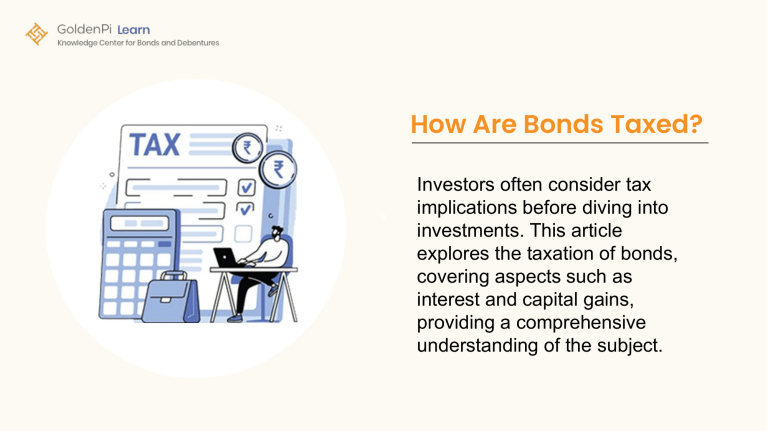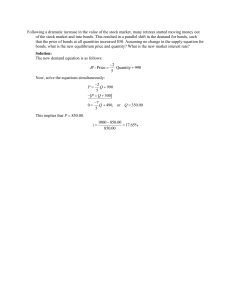
How Are Bonds Taxed? v Investors often consider tax implications before diving into investments. This article explores the taxation of bonds, covering aspects such as interest and capital gains, providing a comprehensive understanding of the subject. What is interest? Interest, a fixed payment on the principal investment, is received based on investor preferences—monthly, quarterly, semi-annually, or annually. What is a capital gain? • Capital gain arises when a bond, bought at face value, is sold at a better price. Two types: • Long-term capital gain (LTCG): Held for more than 12 months (or 36 months for unlisted bonds). • Short-term capital gain (STCG): Held for less than 12 months (or less than 36 months for unlisted bonds). How are interest and capital gains taxed? Interest is considered income and taxed per individual slab rates. Capital gains: • LTCG (listed bonds): Taxed at 10% without indexation. • LTCG (unlisted bonds): Taxed at 20% without indexation. • STCG (both listed and unlisted bonds): Taxed per applicable slab rates. Other types of bonds • Tax-free bonds: Interest is tax-free, but capital gains are taxable. • Tax-saving bonds: Exemption on LTCG held till maturity; interest taxed as per slab. • Zero coupon bonds: No interest, LTCG and STCG applicable. • Market-linked bonds: Interest and capital gains taxed based on performance. Corporate Fixed Deposit and Recent Update • Recent amendment: TDS on interest income for listed corporate bonds (> Rs 5,000). • Exemption for government and sovereign bonds. • Form 15G (below 60) and 15H (above 60) for TDS claim if tax liability is nil. The Wrap Understanding tax implications allows informed bond investments. Different bonds offer tax exemptions based on needs. Bonds provide higher interest rates compared to traditional FDs with lower risk. THANK YOU To know more, visit: https://goldenpi.com/blog/essentials/how-are-bonds-taxed/




